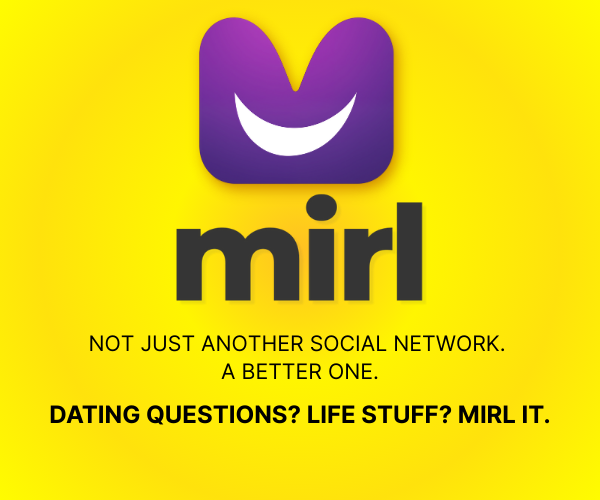23 Science-Backed Facts & Texting Habits That Make or Break Relationships

How much does texting affect your relationship? Here are the most surprising texting habits, backed by science, that reveal how it shapes love.
Wondering about your texting habits, or want to learn a few genuine facts about texting? Well, texting isn’t just a cute way to send “good morning” or “wyd” anymore, it’s literally the nervous system of modern relationships.
From the early flutters of “hey :)” to that dreaded read receipt with no reply, texting can make or break how we feel in a relationship. And science backs it: texting habits are now strongly tied to how connected, secure, and satisfied we feel in love.
Let’s cut to it. Here are three facts that might just change the way you text your partner:
1. Too much texting leads to lower relationship satisfaction, especially when it’s used to avoid face-to-face conflict.
2. Men who text more often than their partners tend to feel less happy in the relationship.
3. Texting to express appreciation or love increases satisfaction for both partners, regardless of gender.
📚 Source: Jin, B., 2013, Does Texting Support or Hurt Relationship Satisfaction?
📚 Source: Coyne, S.M., et al., 2011, Does Texting Make People Insecure in Their Relationships?
[Read: 34 must-know funny emojis for couples + the best flirty, naughty combos!]
Psychology-Backed Texting Facts That Reveal How We Really Connect
That being said, we’ve compiled a list of facts that might interest you and help you improve how you deal with your relationships and communication.
1. Married couples text less as their relationship progresses
Don’t freak out. That’s a good thing! It means that they’re communicating more in person than they are through social media and their phones.
2. Voice notes and memes are the new love languages
Research shows that people who send media-based messages (voice notes, memes, videos) tend to feel more emotionally expressive and less misunderstood in texting-based relationships. It’s not just about words anymore, it’s about how well you vibe through shared content.
📚 Source: Hall, J.A., & Baym, N.K. ,2012, Calling and texting in romantic relationships
3. Read receipts and reply times trigger anxiety, even in healthy relationships
One study found that delayed responses or “read but no reply” patterns were associated with increased cortisol (stress) levels in anxious attachment types. This means your texting habits may unintentionally create emotional turbulence.
📚 Source: Drouin, M., et al., 2012, Text messaging and attachment
4. Too much texting can be bad for your relationship
Relax. You can still talk to each other every day but the research says that incessantly texting about things that are of no consequence can take its toll on your relationship. Stick to actual conversations and not silence fillers.
5. People who mirror texting styles report higher satisfaction
When partners use similar punctuation, emoji use, and response times, it leads to what psychologists call “interactional synchrony.” This creates the feeling of being seen, understood, and emotionally attuned.
📚 Source: Luo, S., & Zhang, G., 2009, Matching hypothesis in romantic relationships
6. Men who text more are unhappier in their relationships
This could be connected to men’s egos since their primal instincts program them to expect rewards when they provide for their mate. In this case, they provide affection through texting. Not being rewarded with the same amount of attention can, and will, annoy them.
7. Women who text more are happier in their relationships
In this regard, it seems that women are fueled by the attention that texting gives them. Whether or not their partner texts as much is of no consequence, unless the frequency is alarming, like when a guy rarely texts. [Read: 48 rules & texting etiquette for guys AND girls in the early stages of dating]
8. Both men and women are happier when their partner sends them texts that show appreciation or compliments
If you’re worried about items 3 and 4, you can rest easy, because those can be remedied with a simple solution: send texts that matter to you and your partner, preferably ones that show affection and give compliments.
9. Using texting to fix relationship problems is bad for a couple
Many couples reported that they felt less happy when their partners used texting to solve relationship problems. They preferred to discuss things out in the open, yet their partners opted to hide behind their screens.
10. Men don’t like being texted while at work
This could be because men consider work one of their highest priorities. When you text about useless things while they’re at work, they see it as a hindrance rather than an act of affection. For women, it might not be as annoying, but the same goes for them when their partners text unnecessarily.
[Read: Snapchat Sexting: How to Own Your Lover With the Snap of a Camera]
11. Using one-word texts like “k,” “fine,” and “good,” without capitalization or punctuation is a turn-off
Isn’t it always? Using this as a passive-aggressive way to start a fight is also one of the markers of an unhappy relationship.
12. Too much intense and flirty texting can scare away a person
This only counts when you just started dating, i.e. after the first date, or before you even see each other in person. Men and women find overly affectionate strangers to be tiresome, annoying, and, dare we say, creepy. [Read: What makes a guy creepy? 24 signs & types of men girls should avoid]
13. Texting during a date is a signal for most people to bolt
It’s rude, impolite, boorish…I could go on and on, but anyone who sees a person texting at the table will be put off by the act.
14. Younger people (aged 18–25) rely more on texting for emotional intimacy
Studies show that Gen Z and young millennials use texting as their primary method of romantic connection, especially in early stages of dating. They’re more comfortable expressing feelings digitally, and often equate quick replies with emotional validation.
📚 Source: Drouin, M., et al., 2012, Text messaging and attachment
15. Most relationships now begin and evolve through texting
From first flirty hellos to major emotional confessions, couples increasingly rely on texting during the early stages of dating and relationship development. In fact, researchers have found that how couples communicate via text directly influences their emotional connection and future relationship satisfaction.
📚 Source: Liesel L. Sharabi et al., 2019, Texting Toward Intimacy
16. One in five texters receive a breakup text
One of the saddest statistics I’ve ever read, but the numbers do not lie. [Read: The best way to break up with someone no matter the situation]
17. When someone relies too much on texting, they are much unhappier in their relationships
When a person finds joy in texting and then feels despair when it’s not there, it’s a sign that the relationship itself is not what’s fueling the happiness they need.
18. People who are secure about themselves don’t require the assurance that constant texting gives
Not everyone is dependent on texting. Those people are the ones who don’t crave attention and do not look too deeply into the short messages they receive.
19. People who are insecure turn to texting to get assurances from their romantic interests
Insecure people rely on the validation that texting gives them. Texting equals affection; therefore, it tells them that someone cares, even though it’s just a social reflex.
20. People who are scared of being abandoned will avoid being controlled by texting habits to have a semblance of control over their relationships
If someone has abandonment issues, you’re stuck with one or two outcomes: someone who avoids texting or someone who will text you incessantly. Either way, the main goal is to take control of the situation.
21. The more you use texting as a weapon, the more unattached your partner gets
Every time you use texting to start a fight, your partner withdraws further from you emotionally. [Read: 42 red flags & signs it’s time to end your relationship & move on for good]
22. People are dissatisfied with their relationships when texting affects their other relationships or responsibilities
If texting is putting a damper on other important things like work and your other relationships, like with your family and friends, it will significantly decrease your partner’s overall satisfaction with your relationship.
When someone likes texting, they like their relationship. If not, then it’s obvious where this is going.
Want more than just texting facts?
Looking for something more to build intimacy in your relationship? Here are a few spicy guides to build intimacy, and have fun doing it while texting!
- How to Start Sexting: 59 Hot Examples & 51 Sexy Ways to Sext Someone
- How to Sext a Girl Right: 74 Naughty Secrets that’ll work on EVERY Girl!
- 23 Hot Ways to Sext a Guy & 48 Naughty Examples to Make Him Hot & Hard
Here’s the real deal: texting is a tool, not the relationship itself.
Sure, it can be fun, sexy, even comforting, but it can also blur boundaries, create misunderstandings, and amplify insecurity if it’s not aligned with how we feel in real life.
These texting facts aren’t meant to scare you off your phone, but to help you notice how your digital habits reflect what’s really going on beneath the surface.
[Read: Frexting: What It Is, How To Do It & Why Sexting Friends Is a Thing]
If texting is your main way of connecting, make it meaningful. If it’s driving distance or drama, that’s a cue to step back and reconnect in real time. Ultimately, the most fulfilling relationships are built on presence, not just emojis and “heyyy”s.
So whether you’re the double texter, the voice note sender, or the cryptic one-word replier, just know that your texting style says more about your love life than you think.
[Read: Emoji Sexting: 30 Fun Emojis to Make Any Text Seem Extra Flirty & Naughty!]
And now that you know the science behind your texting habits, use these texting facts to text better, love deeper, and disconnect when it matters most.
















